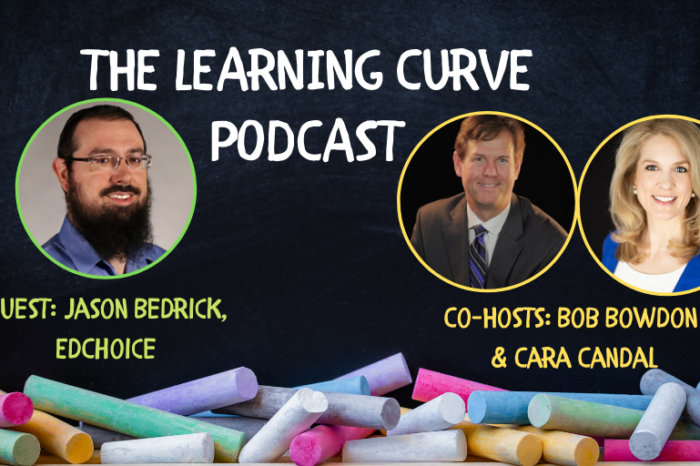Jason Bedrick on Religious Freedom & Private School Autonomy
Bob and Cara talk with Jason Bedrick, EdChoice’s director of policy, about New York’s controversial “substantial equivalency” proposal that would give the state Department of Education oversight of school curricula at yeshivas and other private and parochial academies to ensure parity with their public school counterparts. Jason explores the historical roots of “substantial equivalency” statutes, and questions their compatibility with a free and pluralistic society. He points to European approaches to educational pluralism, and New York’s case, as bellwethers for the rest of the country. This battle is the subject of Jason’s forthcoming book with Jay Greene, Yeshivas vs. the State of New York: A Case Study in Religious Liberty and Education.
Stories of the Week: In Michigan, a new partnership model to improve struggling schools that serve 50,000 students puts the districts themselves in charge of managing their own turnaround plans instead of the state – can this strategy work? Is Texas’s cap on special education services an arbitrary and unfair denial in violation of federal disability laws, or a legitimate effort to limit over-classification of special needs students? A new report claims that teacher morale has fallen dramatically, from 50 percent in 2018 to 34 percent in 2019 – how can we change course?
Commentary of the Week: Erik Hanushek in Education Next, “Professionalizing Teaching and Winning the Salary Wars.”
Tweet of the Week: Marilyn Muller ~ Dyslexia Advocate @1in5advocacy
Wait…you have two children in private school, but you’re raging at us about saving public schools, and our choices to remove our neurodiverse IDEA children from public school over the abuse #FAPEdenied inflicts?! Respectfully, isn’t that the definition of hypocrite?
— Marilyn Muller ~ Dyslexia Advocate (@1in5advocacy) November 13, 2019
Newsmaker Interview Guest:
 Jason Bedrick is director of policy for EdChoice. Previously, Bedrick served as policy analyst with the Cato Institute’s Center for Educational Freedom. He also served as a legislator in the New Hampshire House of Representatives and was an education policy research fellow at the Josiah Bartlett Center for Public Policy. Bedrick received his master’s degree in public policy from the John F. Kennedy School of Government at Harvard University, where he was a fellow at the Taubman Center for State and Local Government.
Jason Bedrick is director of policy for EdChoice. Previously, Bedrick served as policy analyst with the Cato Institute’s Center for Educational Freedom. He also served as a legislator in the New Hampshire House of Representatives and was an education policy research fellow at the Josiah Bartlett Center for Public Policy. Bedrick received his master’s degree in public policy from the John F. Kennedy School of Government at Harvard University, where he was a fellow at the Taubman Center for State and Local Government.
Twitter: @JasonBedrick
Next week’s guest: Steven Wilson, Founder and former CEO, Ascend Charter Schools
News Links:
https://finance.yahoo.com/news/low-teacher-morale-has-reached-a-tipping-point-study-142620535.html
Check out our other episodes of “The Learning Curve” podcast!
Get Updates on Our Education Research














